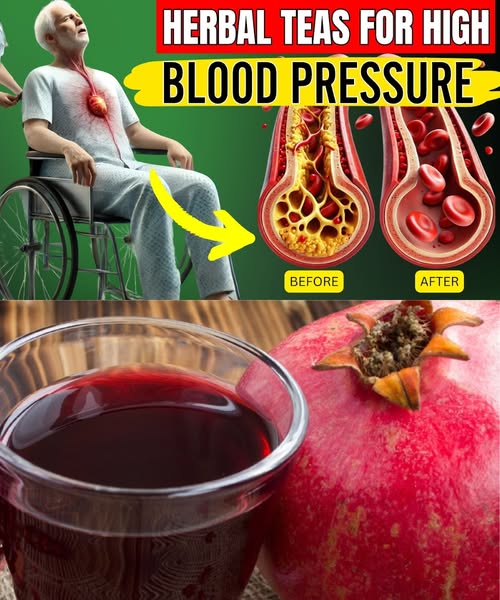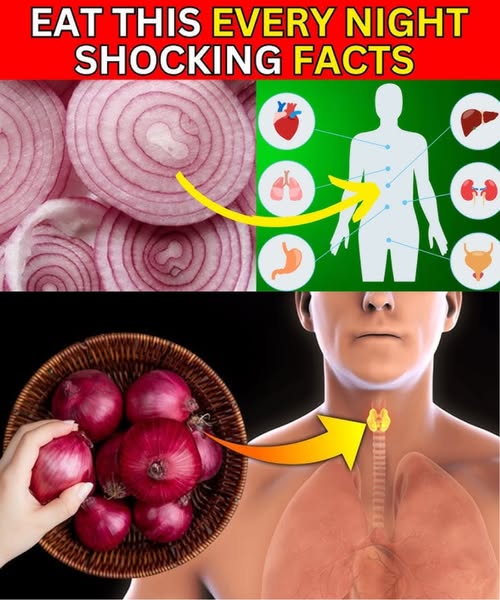Introduction:

High blood pressure and clogged arteries are two silent killers that millions battle every day. The medical world often turns to prescriptions first—but nature has its own remedies. And here’s the truth that rarely makes headlines: certain herbal teas have proven power to naturally lower blood pressure and clear out arterial blockages.
While your doctor might not mention these, ancient wellness traditions and new scientific studies continue to validate their life-changing effects. In this guide, we reveal eight powerful herbal teas that could help you reclaim your cardiovascular health—without side effects.
If you’re tired of depending solely on medication, or you’re looking for a natural way to support your heart, keep reading. This article uncovers what works, why it works, how to use it, and the science behind the claims.
Why Blood Pressure and Artery Health Matter More Than Ever
High blood pressure (hypertension) affects over 1.3 billion people worldwide, according to the World Health Organization (WHO). Left unchecked, it leads to stroke, heart attack, kidney failure, and cognitive decline.
Clogged arteries—often caused by plaque buildup—restrict blood flow and reduce oxygen delivery to vital organs. Together, these conditions create a silent ticking time bomb inside your body.
But here’s the hopeful truth: Nature offers help, and these 8 herbal teas might be the most underestimated cardiovascular allies in your kitchen.
The 8 Best Herbal Teas to Lower Blood Pressure and Clean Arteries
Let’s dive into the top picks, each backed by tradition and supported by emerging science.
1. Hibiscus Tea – The Ruby Red Pressure Reducer
Why it works:
Hibiscus tea contains anthocyanins and polyphenols, which have been shown to reduce systolic and diastolic blood pressure.
Scientific insight:
A 2010 study in the Journal of Nutrition found that adults who consumed three cups of hibiscus tea daily for six weeks significantly lowered their blood pressure.
Benefits:
- Lowers blood pressure naturally
- Reduces LDL (bad) cholesterol
- Loaded with antioxidants
How to use:
Steep 1–2 teaspoons of dried hibiscus petals in hot water for 5–10 minutes. Drink once or twice daily, preferably without added sugar.
2. Garlic Tea – The Artery Detoxifier
Why it works:
Garlic is rich in allicin, a sulfur compound that relaxes blood vessels, reduces inflammation, and dissolves plaque.
Scientific backing:
A 2016 study in The Journal of Nutrition showed aged garlic extract significantly improved arterial elasticity and slowed down plaque accumulation.
Benefits:
- Improves circulation
- Breaks down arterial plaque
- Regulates blood pressure
How to use:
Crush 2 cloves of garlic, boil in water for 10 minutes, and drink warm. Add lemon or honey for taste.
3. Ginger Tea – The Vascular Revitalizer
Why it works:
Ginger boosts nitric oxide production and reduces oxidative stress, both crucial for vascular health and blood pressure regulation.
Science says:
A 2017 meta-analysis published in Nutrition showed that ginger supplementation significantly reduced blood pressure in hypertensive individuals.
Benefits:
- Enhances blood flow
- Anti-inflammatory
- Reduces arterial stiffness
How to use:
Boil fresh ginger slices in water for 10–15 minutes. Consume 1–2 cups daily.
4. Green Tea – The Cholesterol Combatant
Why it works:
Loaded with catechins, green tea reduces LDL cholesterol and enhances endothelial function, essential for artery health.
Did you know?
A study from The American Journal of Clinical Nutrition linked green tea with a 31% lower risk of cardiovascular disease.
Benefits:
- Lowers blood pressure and cholesterol
- Improves artery flexibility
- Packed with antioxidants
How to use:
Brew green tea for 3 minutes. Drink in the morning and afternoon—avoid before bed due to caffeine.
5. Hawthorn Tea – The Ancient Heart Tonic
Why it works:
Hawthorn berries strengthen heart muscles and widen blood vessels, promoting better circulation and pressure regulation.
Traditional medicine roots:
Used for centuries in Traditional Chinese Medicine and European herbalism to treat heart-related ailments.
Benefits:
- Enhances heart performance
- Expands arteries
- Stabilizes blood pressure
How to use:
Simmer dried hawthorn berries in water for 15–20 minutes. Drink once or twice a day.
6. Turmeric Tea – The Inflammation Crusher
Why it works:
Turmeric’s active ingredient, curcumin, combats inflammation, improves endothelial function, and helps remove arterial plaque.
Evidence:
Research from The Journal of Clinical Hypertension suggests that curcumin supports healthy blood pressure and vascular function.
Benefits:
- Fights inflammation
- Supports blood vessel health
- Lowers bad cholesterol
How to use:
Simmer 1 tsp turmeric powder in water for 10 minutes. Add black pepper to enhance absorption.
7. Rooibos Tea – The Stress Reducer
Why it works:
Rooibos is caffeine-free and full of aspalathin, a compound that reduces cortisol, the stress hormone that spikes blood pressure.
Statistically speaking:
Stress is a leading contributor to hypertension, and managing it is crucial for long-term heart health.
Benefits:
- Reduces cortisol
- Supports heart rhythm
- Helps lower blood pressure
How to use:
Steep rooibos leaves in hot water for 5 minutes. Drink morning or evening.
8. Cinnamon Tea – The Circulation Booster
Why it works:
Cinnamon stimulates blood flow, reduces blood sugar spikes, and improves lipid profiles, all of which benefit arterial health.
Proven by science:
A 2013 review in Annals of Family Medicine showed cinnamon can significantly lower systolic and diastolic blood pressure.
Benefits:
- Improves circulation
- Lowers cholesterol
- Regulates blood pressure
How to use:
Simmer a cinnamon stick in water for 10 minutes. Drink daily or every other day.
Frequently Asked Questions (FAQs)
Q1: Can herbal teas replace blood pressure medication?
Answer: Not entirely. Herbal teas can support your health and reduce dependence on medication, but never stop prescriptions without medical advice.
Q2: How long does it take to see results from herbal teas?
Answer: Many people report improvements within 2 to 6 weeks of consistent use. Results vary depending on diet, lifestyle, and severity of the condition.
Q3: Are there any side effects to drinking these teas?
Answer: Generally, they are safe. However, large doses of garlic or turmeric can thin blood, so consult your doctor if you’re on anticoagulants.
Q4: What’s the best time to drink herbal tea for heart health?
Answer: Mornings and evenings work best. Avoid caffeinated teas before bedtime. Stay consistent for maximum results.
Bonus Tips for Maximum Heart Health
- Cut back on sodium: Reducing salt intake is still one of the most effective ways to manage blood pressure.
- Add omega-3-rich foods: Think flaxseed, walnuts, or fish.
- Exercise regularly: Just 30 minutes a day can lower blood pressure by 5 to 8 mm Hg.
- Hydrate well: Water helps flush toxins and keeps your blood volume regulated.
- Avoid processed foods and sugar: These contribute to inflammation and arterial plaque buildup.
Conclusion: Take Control of Your Heart Health Today
Your heart is your most vital organ—and it deserves more than reactive care. While medications have their place, nature provides powerful tools to proactively support your cardiovascular system.
These 8 herbal teas aren’t just age-old remedies—they’re backed by science and empowering millions to take charge of their blood pressure and artery health.


